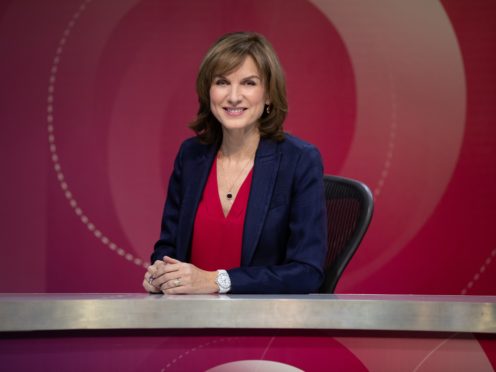Question Time is more important than ever during the current political tumult, the show’s host Fiona Bruce has said.
The debate programme will mark its 40th anniversary on Thursday, a day after the House of Commons resumes following the Supreme Court’s decision that Prime Minister Boris Johnson’s advice to the Queen to suspend Parliament for five weeks was unlawful.
Veteran MP Ken Clarke, who was effectively thrown out of the Conservative party earlier this month, currently holds the record for the most appearances on the show, with 59 outings as a panellist.
However, it was an appearance Eric Pickles, the former communities secretary, who is responsible for Bruce’s favourite moment on the show.
She said: “My number one moment on Question Time over the years has to be when Eric Pickles, during the furore over MPs expenses back in 2009, lamented about having to turn up to work on time, to which David Dimbleby responded ‘like a job in other words?’”
The show has had four permanent hosts over the past four decades – Sir Robin Day, Peter Sissons, David Dimbleby and Bruce – and has had more than 1500 different panel guests since the first episode in 1979.

They have included Tony Blair, David Cameron, Sir Vince Cable, Diane Abbott, Theresa May and Boris Johnson, as well as non-politicians such as Jo Brand, Akala and Prue Leith.
Bruce said: “I think Question Time is more important than ever before during a time of such historic change for the UK and tumult at Westminster.
“It provides a unique and much needed opportunity for the public to question, scrutinise and hold to account their elected representatives. And it’s the audience that makes the programme what it is, their questions can cut through in a way that journalists often can’t.
“I feel hugely privileged to be part of it”.
Question Time is on BBC One on Thursday at 10.35pm.
